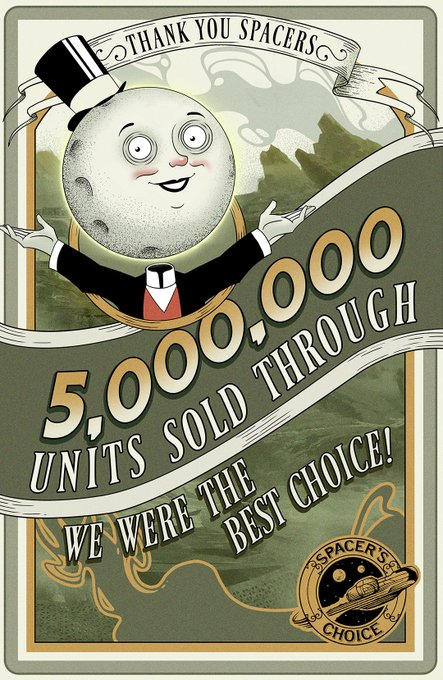this post was submitted on 27 Oct 2023
116 points (93.3% liked)
Games
18386 readers
646 users here now
Video game news oriented community. No NanoUFO is not a bot :)
Posts.
- News oriented content (general reviews, previews or retrospectives allowed).
- Broad discussion posts (preferably not only about a specific game).
- No humor/memes etc..
- No affiliate links
- No advertising.
- No clickbait, editorialized, sensational titles. State the game in question in the title. No all caps.
- No self promotion.
- No duplicate posts, newer post will be deleted unless there is more discussion in one of the posts.
- No politics.
Comments.
- No personal attacks.
- Obey instance rules.
- No low effort comments(one or two words, emoji etc..)
- Please use spoiler tags for spoilers.
My goal is just to have a community where people can go and see what new game news is out for the day and comment on it.
Other communities:
founded 2 years ago
MODERATORS
you are viewing a single comment's thread
view the rest of the comments
view the rest of the comments

How so?
I wouldn't say "more worthwhile". But comparing them (in my personal opinion): Outer Worlds trades variety and scale for a more narratively dense world.
Biggest thing is you get significantly more choice in questlines. Bethesda's approach in Starfield is very railroad-y, almost all the big questlines end up picking between two distinct options while leaving you thinking "you know we could just do a third one, or both depending on the circumstances". They also, outside of maybe one or two circumstances, have zero opportunity for creative player intervention. If it's not explicitly mentioned as a quest objective, it's not an option. e.g. No, you can't use the EM gun on this guy to bring him in and face justice, the objective is to kill him, so you will kill him and his guards too. No, you can't go and talk to your superiors for backup before confronting somebody over a major crime. Stuff like that.
Outer Worlds is like Fallout New Vegas in that the world responds to your actions as well as dialogue choices. Every NPC is killable, and they've written a number of scenarios (some of them absolutely gut wrenching) for killing certain people at certain points. Big quests tend to present two options which both have dire consequences, but by doing other quests, talking to other characters, you can uinlock additional options or improve how things will turn out. e.g. You can uncover an internal power struggle in a faction and help choose its leader, which changes how a peace talk can turn out with another faction.
Outer Worlds also gives you more tangible consequences for your actions, like changing the feel of an early town if you deprive it of power. The epilogue is significantly more detailed than the one Starfield gives you, covering a lot of minor quests and each major character you've interacted with.
None of that is to say though, that Starfield does not have a rich and interesting world with cool characters. I've loved my time with both games and I think SF has more fun combat gameplay, obviously both are similar gun-based RPG games where you mag dump bullet sponge enemies, but hey ho. SF also let me build and fly a ship, go where I want with it and take pretty pictures, which has been a lot of fun. Starfield may have less quest choice, but it offers more variety in what those stories cover, compared to OW's more narrow focus.
I will also say that SF made a pretty bold narrative decision in its main story that I was not expecting from a Bethesda game. Even though I have a love/hate relationship with how it developed after that, and think the moment itself could have been handled better, I still respect it. OW also really hams up the evil corpo humour in ways some people might find annoying and difficult to take seriously.
A measure of worth between the two games really comes down to what you're looking for in a space-themed RPG. Personally, I think they complement each other very well as distinct experiences.